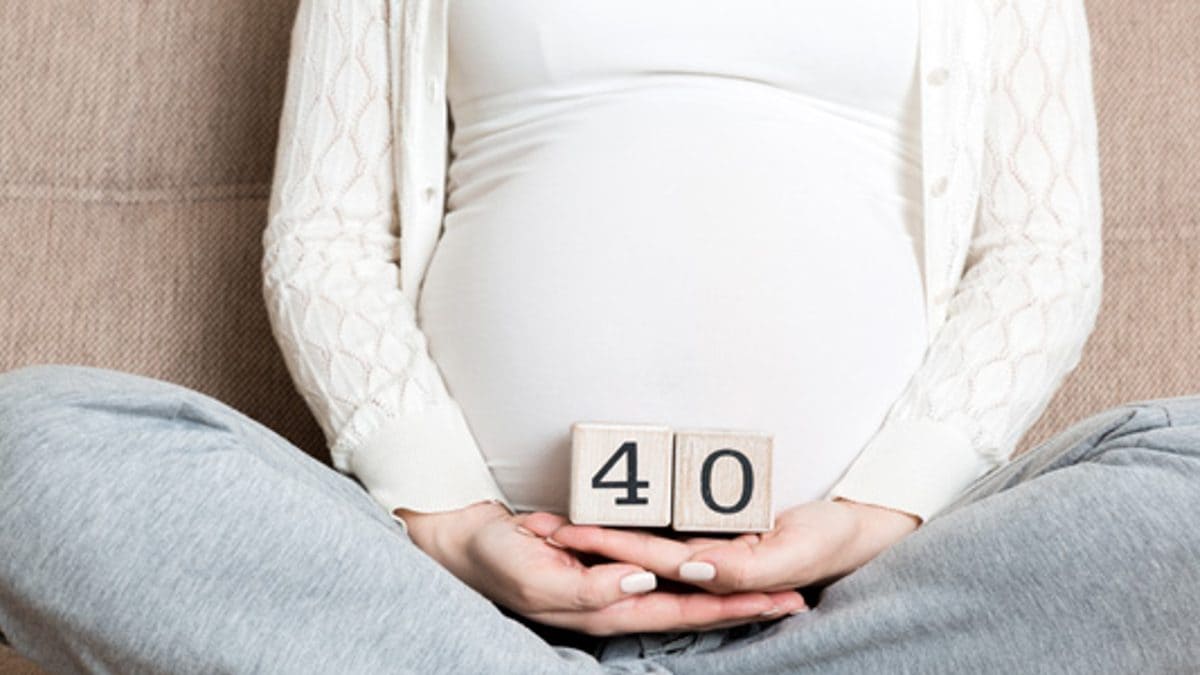Why Is It Hard to Conceive After 40? 3 Ways To Keep Healthy Fertility – News18

Even if it is still possible to become pregnant safely after turning 40, it is important to comprehend the biological elements that may signal difficulties at this time.
Let’s look at the reasons why people have trouble getting pregnant after they are 40 and provide some useful tips for maintaining healthy fertility
There has been a noticeable shift in societal dynamics as more women are choosing to get pregnant after turning 40. The extraordinary advancements in women’s freedom and equality in most developed countries are to blame for this developing trend. These developments have given women the freedom to concentrate on their jobs, pursue their passions, and realise their aspirations before feeling compelled to have children in their early 20s. Dr. Anu Sadashiv, a specialist in reproductive medicine at the Milann Fertility and Birthing Hospital in KumaraPark, Bangalore, identifies the biological reasons that could present difficulties for women who are 40 years old trying to get pregnant.
Even if it is still possible to have a safe pregnancy after the age of 40, it is crucial to understand the biological factors that can indicate challenges at this time. These include hormonal imbalances, irregular menstrual cycles, and a natural decline in fertility brought on by declining egg quantity and quality, a higher chance of chromosomal abnormalities, and other variables, such as diminishing egg quantity and quality. According to the Centres for Disease Control and Prevention (CDC), 30% of women between the ages of 40 and 44 experience infertility.
WHY IS IT HARD TO CONCEIVE AFTER THE AGE OF 40?
- Age-related Fertility decline:
As women become older, their fertility naturally declines. This is as a result of a decrease in the number of fertile eggs. Women are born with a limited amount of eggs, and as they approach menopause, their egg supply drastically decreases, making it harder for them to conceive. - Diminished Ovarian Reserve:
One of the major factors contributing to lower fertility after age 40 is the shrinking ovarian reserve. This is a reference to the fewer eggs that are still present in a woman’s ovaries. Since a woman has a limited number of eggs when she is born, their quantity and quality decrease with age. So fewer surviving eggs, which are more likely to contain chromosomal defects, are produced by the time a woman is in her forties. - Age-Related Increase in Chromosomal Abnormalities:
As women age, chromosomal abnormalities in eggs are more likely to arise. The most well-known chromosomal abnormality, Down syndrome, is caused by an extra copy of chromosome 21. The likelihood of getting pregnant and giving birth to a child with Down syndrome or another chromosomal anomaly increases noticeably after the age of 35 and keeps increasing over time. This is one of the challenges of trying to get pregnant after the age of 40.
3 TIPS FOR PRESERVING HEALTHY FERTILITY
- Managing Stress Levels:
Stress levels that are too high can affect fertility. Finding healthy stress-reduction methods might help create an environment that is more conducive to conception, such as mindfulness exercises, regular exercise, hobbies, and asking loved ones for help. - Consider using assisted reproductive technologies:
After the age of 40, couples who are having problems getting pregnant may be advised to use ART, such as in vitro fertilisation (IVF). These techniques function by fertilising eggs outside and inserting the resulting embryos into the uterus, avoiding some of the problems caused by age-related fertility reduction. - Seeking Professional Assistance:
Women need to put their reproductive health first and weigh their fertility options carefully. Consulting with medical experts, such as fertility doctors, can yield insightful information and tailored advice. They can provide a variety of therapies and interventions that are customised to meet each person’s needs, improving the chances of a successful conception.
Due to age-related fertility reductions, decreased ovarian reserve, and an increased chance of chromosomal abnormalities, getting pregnant after 40 can be more challenging. However, women who want to get pregnant after turning 40 shouldn’t give up. By understanding the factors that affect fertility and using certain approaches, it is still possible to increase the likelihood of becoming pregnant. Controlling stress, considering assisted reproductive technologies, and receiving professional guidance can all lead to a healthy pregnancy.
For all the latest lifestyle News Click Here


